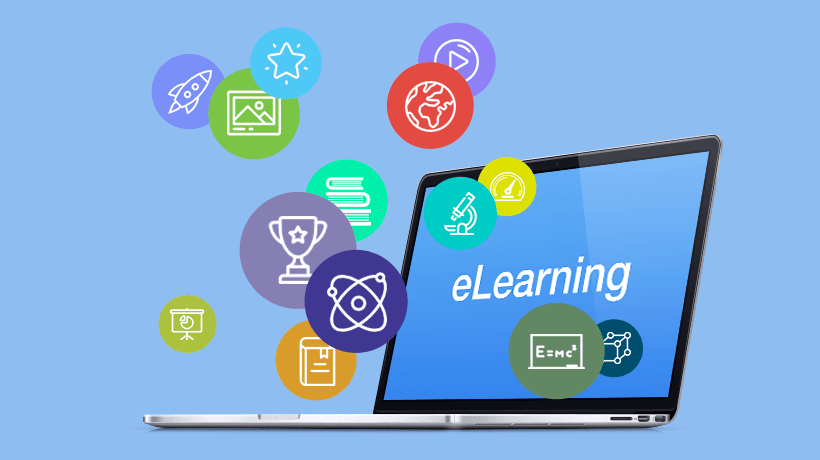How Singapore LMS Solutions Transform Corporate Training Efforts
How Singapore LMS Solutions Transform Corporate Training Efforts
Blog Article
The Ultimate Overview to Choosing the Right Discovering Management System
Selecting a proper Knowing Administration System (LMS) is a critical choice that can substantially influence academic performance and total business objectives. The subtleties of these considerations increase crucial inquiries that warrant expedition, especially as the landscape of digital knowing continues to evolve.
Comprehending Knowing Monitoring Equipment
In the context of modern-day education and learning and training, a Learning Administration System (LMS) works as a critical device for delivering, tracking, and handling educational material. An LMS promotes the company of instructional sources, allowing establishments and organizations to produce a central center for learning materials. This system sustains numerous finding out methods, consisting of online courses, mixed discovering, and standard classroom setups.
LMS systems are designed to enhance the knowing experience by offering a structured setting where students can access web content at their comfort. They frequently include features such as assessments, development monitoring, and coverage devices, which help educators check trainee efficiency and engagement. Additionally, LMSs can be customized to satisfy the specific demands of various students and companies, enabling tailored educational experiences.
The combination of an LMS into instructional settings likewise advertises cooperation among students and instructors, fostering a feeling of area with discussion forums and team jobs. As organizations progressively recognize the significance of constant learning and development, the role of LMSs in helping with effective training services remains to grow, positioning them as vital assets in the educational landscape.
Secret Attributes to Think About
When choosing a Learning Monitoring System (LMS), numerous vital functions warrant mindful consideration to ensure the platform aligns with academic goals. First and leading, user-friendliness is essential; a straightforward user interface promotes simplicity of navigating for both learners and administrators.

Integration with existing devices is another significant aspect; the LMS should seamlessly connect with tools like CRM systems, video conferencing platforms, and web content repositories. canvas singapore. Mobile compatibility is increasingly important, as students usually favor access to resources on-the-go
Additionally, customization choices permit institutions to tailor the LMS to their certain branding and instructional requirements. Last but not least, take into consideration the platform's scalability, guaranteeing it can suit future growth and modifications in individual need. Focusing on these vital features will help in picking an LMS that efficiently improves the learning experience and satisfies institutional objectives.
Prices Designs and Budgeting
Budgeting for an Understanding Management System (LMS) calls for a comprehensive understanding of numerous pricing versions to make certain a sustainable investment. Organizations must review their particular requirements and long-lasting objectives while considering the financial effects of each LMS option.

Along with the base pricing, organizations should additionally take into consideration prospective added prices such as application, maintenance, and support services. It is important to examine the complete price of possession over the LMS's lifecycle, including potential upgrades or extra features that might be necessary as the company expands. By thoroughly examining these rates designs and associated costs, organizations can make informed choices that align with their monetary constraints and educational goals.
Evaluating Customer Experience
Examining the effectiveness of a Learning Administration System (LMS) goes past economic factors to consider; user experience plays a crucial function in the total success of the system. A well-designed user interface can significantly improve engagement and retention, making it important to assess exactly how instinctive the system is for both administrators and learners.
When evaluating user experience, take into consideration navigational simplicity, availability features, and the responsiveness of the system across various tools. An LMS must give a seamless experience, permitting customers to quickly situate resources, track development, and involve with web content without unneeded rubbing.
Furthermore, collect feedback from real individuals to determine contentment levels and identify prospective discomfort points. Focus groups or studies can supply valuable understandings right into just how learners communicate with the system and any kind official statement of difficulties they face.
It's also essential to examine the degree of customization readily available within the LMS. An adaptable platform that enables companies to tailor the interface and features to their certain requirements can significantly enhance customer engagement. Inevitably, a positive customer experience cultivates a learning environment that encourages engagement and facilitates expertise retention, making it a key consider the selection of an LMS.
Execution and Support Choices
Successfully rolling out a Learning Management System (LMS) needs careful factor to consider of both application methods and ongoing assistance options. Organizations ought to assess whether they will certainly manage the execution in-house or collaborate with the LMS supplier.
Recurring support is just as essential to make certain this contact form the LMS stays efficient and easy to use - canvas singapore. Organizations should evaluate the sorts of support used by the supplier, consisting of technical assistance, individual training, and normal updates. A durable support group can aid resolve problems quickly, thus improving customer satisfaction and engagement
Additionally, take into consideration the accessibility of resources such as user guidebooks, Frequently asked questions, and on-line forums. These can encourage customers to repair their own concerns and cultivate a sense of area. Inevitably, the appropriate application and assistance options will certainly not only help with a smoother shift to the LMS however likewise add to its lasting success within the organization.
Verdict
In final thought, choosing an ideal Discovering Management System (LMS) necessitates mindful consideration of a number of critical variables, including essential attributes, pricing models, customer experience, and implementation approaches. An investigate this site appropriate LMS not only boosts instructional results but additionally cultivates collaboration among users and integrates perfectly with existing tools. canvas singapore. Eventually, a thorough examination of these aspects will sustain companies in achieving their instructional goals and making sure a successful learning setting for all stakeholders involved
Report this page